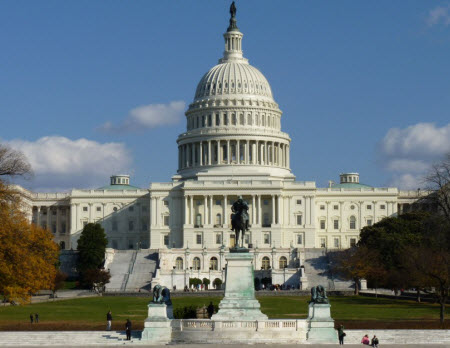Divided Senate Commerce OKs Simington for FCC Seat
Would succeed O'Rielly, who has to exit before new Congress is seated

The smarter way to stay on top of the multichannel video marketplace. Sign up below.
You are now subscribed
Your newsletter sign-up was successful
A divided Senate Commerce Committee has voted to recommend Senate confirmation of Republican FCC nominee Nathan Simington.
That came at an executive session in the committee Wednesday (Dec. 2). Democrats view it as a controversial appointment during a lame duck session. The Republicans still control the Senate, but may not after the Georgia run-offs in early January.
A roll call vote was called for the Simington nomination, which passed 14-12 along party lines.
Sen. Roger Wicker (R-Miss.), in introducing the vote, made no comment on Simington's suitability for the post, as he had for two other nominees getting votes at the session.
Simington was reportedly a presidential pick, while traditionally, as the senior Republican on the Commerce Committee, Wicker would, by custom, have had a say in who was nominated.
Sen. Maria Cantwell (D-Wash.) criticized the process of the President pulling O'Rielly's nomination, apparently in retaliation, and inserting Simington. She cited the latter's lack of experience with the FCC and questions about his candor. She said he had misrepresented his involvement with the Sec. 230 petition, citing e-mails to that effect that were reported last week.
Simington is currently senior advisor at the National Telecommunications and Information Administration (NTIA), which is the President's chief communications advisory arm, where he worked on 5G security/supply chain issues.
The smarter way to stay on top of the multichannel video marketplace. Sign up below.
Simington also worked on NTIA's petition to the FCC to come up with a regime for using changes to social media's Sec. 230 immunity from civil liability over third party content moderation to regulate social media, a petition President Trump mandated.
In an unusual move, President Donald Trump took to Twitter to urge the confirmation of Simington to succeed Michael O'Rielly as a Republican member of the FCC.
Trump pulled O'Rielly's nomination and replaced it with Simington, who reportedly is more in tune with the President's desire to regulate social media. O'Rielly had publicly questioned the move. Commissioner O'Rielly has to leave the commission before the new Congress is seated. Simington's nomination is for a five-year term backdated to July 1, 2019, when O'Rielly's term expired. Commissioners can serve until the end of the Congress following the one in which their term expires.
Sen. Richard Blumenthal (D-Conn.) said the Simington nomination had been rushed and that the nominee's independence has been in dispute because he worked on the Sec. 230 petition that the FCC has signaled it will act on (though what a Trump FCC giveth, a Biden FCC could taketh away, as was the case with net neutrality rules adopted under Democratic chairman Tom Wheeler and jettisoned by his successor).
He said Simington's answers during his nomination hearing had been inadequate and evasive and that his sole qualification appeared to be supporting restraining social media companies, what he called the President's "indefensible assault on the First Amendment.
Blumenthal said that installing Simington would deadlock the FCC--at 2-2--once FCC chairman Ajit Pai and commissioner O'Rielly exit--during a pandemic. He aaded that perhaps some telecom and media companies want that kind of deadlock so that the FCC could be "absent and neutralized," when it needs to me more active than ever in protecting consumers.
He also cited reports Simington had reached out to Fox News to promote the Sec. 230 issue. He pledged to fight the nomination on the Senate floor.
Charte is was all for installing Simington on the FCC ASAP.
“Charter applauds Chairman Roger Wicker and the Senate Commerce Committee on today’s vote approving the nomination of Nathan Simington to serve on the Federal Communications Commission. We encourage the full Senate to move quickly to confirm him so he can begin contributing his talents to the Commission and the people the agency serves.”
"No one wants Nathan Simington on the FCC except an outgoing President and a tiny handful of telecom companies who are gleeful about the idea of kneecapping the agency in the middle of a pandemic," said Fight for the Future Deputy Director Evan Greer. "If the Senate votes to confirm Simington, it will be one of the most cynical moves by this body this year, and that's saying a lot."
New America's Open Technology Institute, whose backers include Google and Facebook, opposes Simington's nomination.
“The Senate should table this unnecessary nomination fight and focus on the pandemic relief legislation that everyone has been waiting for since March. Millions of Americans are suffering through the pandemic without access to the internet," said OTI senior counsel Joshua Stager. "We need FCC commissioners who are laser-focused on this crisis, not waging President Trump's personal vendettas against Twitter. Moreover, the notion that this nominee’s confirmation is explicitly intended to create gridlock at the FCC is galling. The American people don't need gridlock—they need help getting through this pandemic.”
Contributing editor John Eggerton has been an editor and/or writer on media regulation, legislation and policy for over four decades, including covering the FCC, FTC, Congress, the major media trade associations, and the federal courts. In addition to Multichannel News and Broadcasting + Cable, his work has appeared in Radio World, TV Technology, TV Fax, This Week in Consumer Electronics, Variety and the Encyclopedia Britannica.

